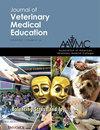利用利益相关者协商确定孟加拉国兽医毕业生的具体专业技能
IF 1.1
3区 农林科学
Q3 EDUCATION, SCIENTIFIC DISCIPLINES
引用次数: 0
摘要
尽管专业技能是国家和国际认证机构公布的 "第一天能力 "的一部分,但孟加拉国兽医学校的课程中相关教学内容有限。因此,我们的研究旨在通过当地咨询,确定孟加拉国兽医最重要的专业技能,为今后改变课程设置提供参考。我们与 45 名利益相关者进行了 11 次焦点小组讨论,他们包括指导学生实习的兽医、教师、应届毕业生、毕业班学生和客户。录音被转录,从孟加拉语翻译成英语,并采用归纳式主题方法进行分析。所有利益相关群体都认为专业技能至关重要。最重要的专业技能包括沟通、道德行为、团队合作、职业选择、财务管理技能、终身学习、时间管理和自我评价。与会者认为,在最后一年的工作实习中是实践许多技能的最佳机会之一,而参加课外活动、通过观察他人学习和自我激励也被认为是很有价值的。与会者认为有必要在课程中开展更正式的专业技能教学。面临的挑战包括在课程中寻找空间、提高大学学术界的认识以及让师生参与新举措。本研究确定了在我们的背景下最重要的专业技能。与相关地区利益攸关方的磋商至关重要,并将为课程改革提供信息。研究结果正被用于专业技能课程的开发,其长期目标是让我们的毕业生为未来的职业生涯做好更充分的准备。本文章由计算机程序翻译,如有差异,请以英文原文为准。
Utilizing Stakeholder Consultations to Identify Context-Specific Professional Skills for Veterinary Graduates in Bangladesh
Despite professional skills being part of the Day One Competences published by national as well as international accreditation bodies, veterinary schools in Bangladesh have limited associated teaching within their curricula. Therefore, our study aimed to identify the most important professional skills for veterinarians in Bangladesh through local consultation to inform future initiatives to change the curriculum. Eleven focus groups were conducted with 45 stakeholders who included veterinarians who supervise students on workplacements, faculty, recent graduates, final year students, and clients. The audio recordings were transcribed, translated into English from Bengali and analyzed using an inductive thematic approach. Professional skills were considered essential by all stakeholder groups. The most important professional skills were identified as communication, ethical conduct, teamwork, career options, financial management skills, lifelong learning, time management and self-appraisal. One of the best opportunities to practice many of the skills was identified as being during final year workplacements, while participating in extracurricular activities, learning by observing others and self-motivation were also considered valuable. Participants identified a need for more formal professional skills teaching within the curriculum. Challenges included finding space in the curriculum, raising awareness amongst university academics and engaging students and faculty in the new initiatives. This study has identified the most important professional skills in our context. Consultation with relevant regional stakeholders was crucial and will inform curricular change. The results are being used in the development of professional skills courses with the long-term aim of better preparing our graduates for their future careers.
求助全文
通过发布文献求助,成功后即可免费获取论文全文。
去求助
来源期刊
CiteScore
2.20
自引率
30.00%
发文量
113
审稿时长
>36 weeks
期刊介绍:
The Journal of Veterinary Medical Education (JVME) is the peer-reviewed scholarly journal of the Association of American Veterinary Medical Colleges (AAVMC). As an internationally distributed journal, JVME provides a forum for the exchange of ideas, research, and discoveries about veterinary medical education. This exchange benefits veterinary faculty, students, and the veterinary profession as a whole by preparing veterinarians to better perform their professional activities and to meet the needs of society.
The journal’s areas of focus include best practices and educational methods in veterinary education; recruitment, training, and mentoring of students at all levels of education, including undergraduate, graduate, veterinary technology, and continuing education; clinical instruction and assessment; institutional policy; and other challenges and issues faced by veterinary educators domestically and internationally. Veterinary faculty of all countries are encouraged to participate as contributors, reviewers, and institutional representatives.

 求助内容:
求助内容: 应助结果提醒方式:
应助结果提醒方式:


